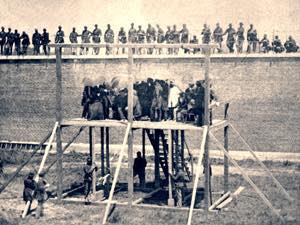A survey commissioned by the by the Shakopee Mdewakanton Sioux Community, based in Prior, Minn., shows supermajorities in all demographic groups in the state of Minnesota support increasing education about tribes and Indigenous people in the state’s public schools.

Nine out of every 10 Minnesotans indicated that they support “increasing the teaching of Minnesota’s Native American history, culture and tribal government in the state’s K-12 public schools.” Ninety percent of respondents agreed with that statement, while 7 percent were opposed and 3 percent did not express an opinion.
Want more Native News? Get the free daily newsletter today.
The statewide survey was conducted as a research project of Understand Native Minnesota, its philanthropic campaign to improve the narrative about Native peoples in Minnesota’s K-12 education system.
“Minnesotans clearly value the importance of educating students about the people indigenous to this land – the Dakota and Ojibwe people,” said Shakopee Mdewakanton Sioux Community Secretary/Treasurer Rebecca Crooks-Stratton, who is also the chair of Understand Native Minnesota. “This new information confirms our belief that improving the accuracy and amount of Native American-related subject matter in our schools is not only the right thing to do, but it is also overwhelmingly supported.”
The survey results show that supermajorities of support exist in all demographic groups, regardless of political affiliation, geography, age or educational level. Supporters include:
- 81 percent of Republicans: 85 percent of GOP men and 77 percent of GOP women.
- 90 percent of political independents: 87 percent of men and 93 percent of women.
- 97 percent of Democrats: 92 percent of DFL men and 100 percent of DFL women.
- 80 percent of self-described conservatives, 95 percent of moderates and 97 percent of liberals.
- 92 percent of women and 88 percent of men.
- 90 percent of white Minnesotans and 96 percent of people of color.
- 90 percent or more in all self-reported income levels.
- 92 percent among college graduates and 87 percent among those without a college degree.
- 96 percent in the Twin Cities metro area, 85 percent in the Twin Cities collar counties, 95 percent in southern Minnesota, 87 percent in northwestern Minnesota and 85 percent in northeastern Minnesota.
“Our tribes are thriving sovereign nations within Minnesota. But many people don’t know about tribal sovereignty, the distinct identity each of the 11 tribes has or even about our very existence,” Shakopee Mdewakanton Sioux Community Chairman Keith Anderson said. “We hope these survey results will encourage educators, policy makers and parents to help the next generation achieve a higher degree of understanding between non-Natives and Natives than ever before in our state’s history.”
The Minnesota polling results show an even stronger degree of support for the teaching of Native subject matter than previous national polling data have shown. In Sept. 2017, the Reclaiming Native Truth project conducted a national public opinion survey of 3,200 adult Americans, which showed that 72 percent of Americans support “significant changes to K-12 curricula to ensure accurate Native history and culture are taught in schools.”
The survey of 800 registered Minnesota voters was conducted Sept. 18-22, 2021, by Public Opinion Strategies, one of the nation’s leading public affairs research firms. It has a margin of error of +/- 3.46 percent.
More Stories Like This
10 Years of Building Business Dreams for Indigenous WomenIchigo Foundation Awards American Indian College Fund Adult Education Program
Bard College Center for Indigenous Studies (CfIS) Hosts Annual Symposium With Keynote Speaker Miranda Belarde-Lewis on March 9–10
American Indian College Fund Announces Spring 2026 Faculty Fellow Cohort
Navajo Nation Signs $19 Million Diné Higher Education Grant Fund Act into Law
Help us defend tribal sovereignty.
At Native News Online, our mission is rooted in telling the stories that strengthen sovereignty and uplift Indigenous voices — not just at year’s end, but every single day.
Because of your generosity last year, we were able to keep our reporters on the ground in tribal communities, at national gatherings and in the halls of Congress — covering the issues that matter most to Indian Country: sovereignty, culture, education, health and economic opportunity.
That support sustained us through a tough year in 2025. Now, as we look to the year ahead, we need your help right now to ensure warrior journalism remains strong — reporting that defends tribal sovereignty, amplifies Native truth, and holds power accountable.
 The stakes couldn't be higher. Your support keeps Native voices heard, Native stories told and Native sovereignty defended.
The stakes couldn't be higher. Your support keeps Native voices heard, Native stories told and Native sovereignty defended.
Stand with Warrior Journalism today.
Levi Rickert (Potawatomi), Editor & Publisher

